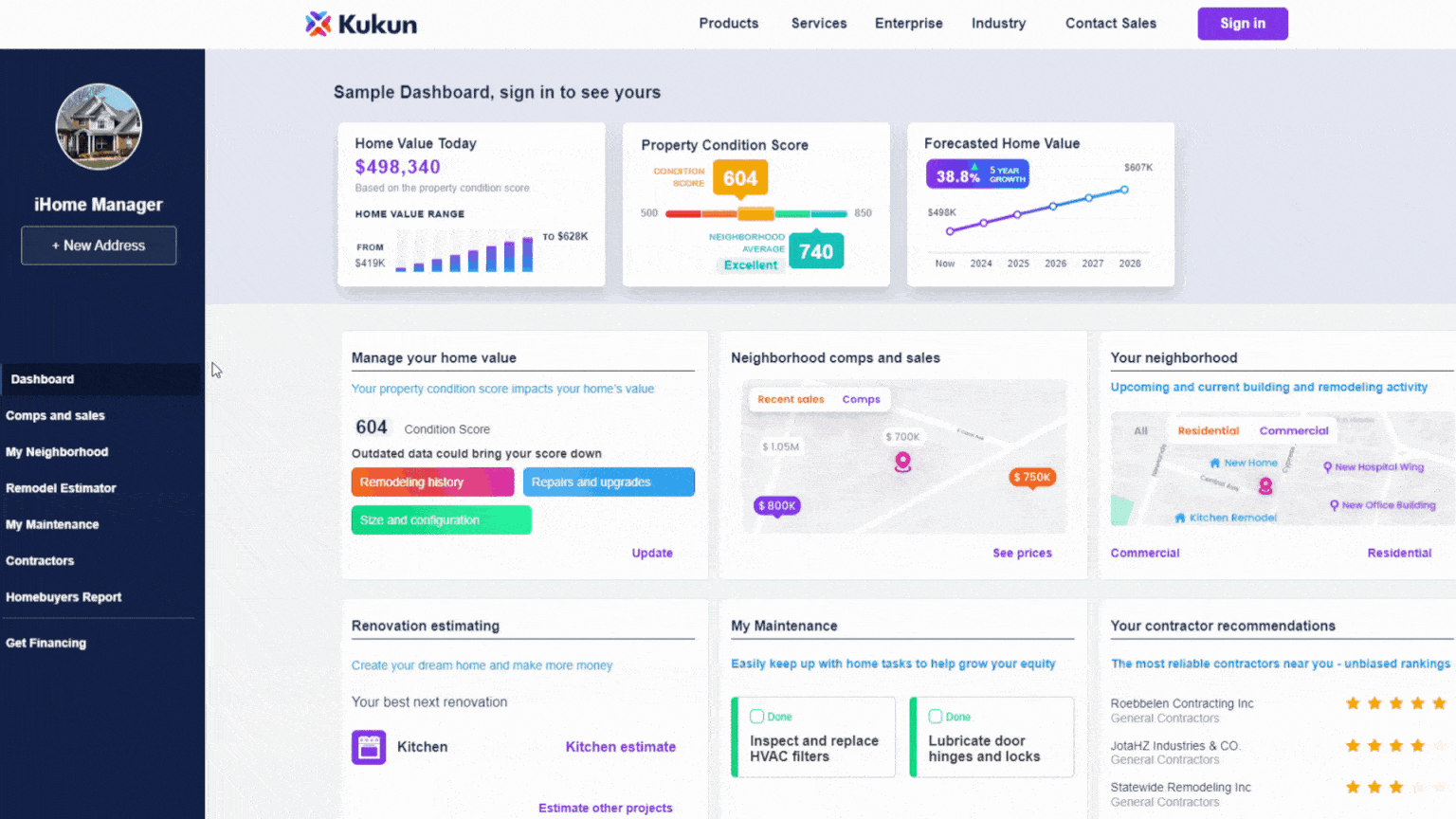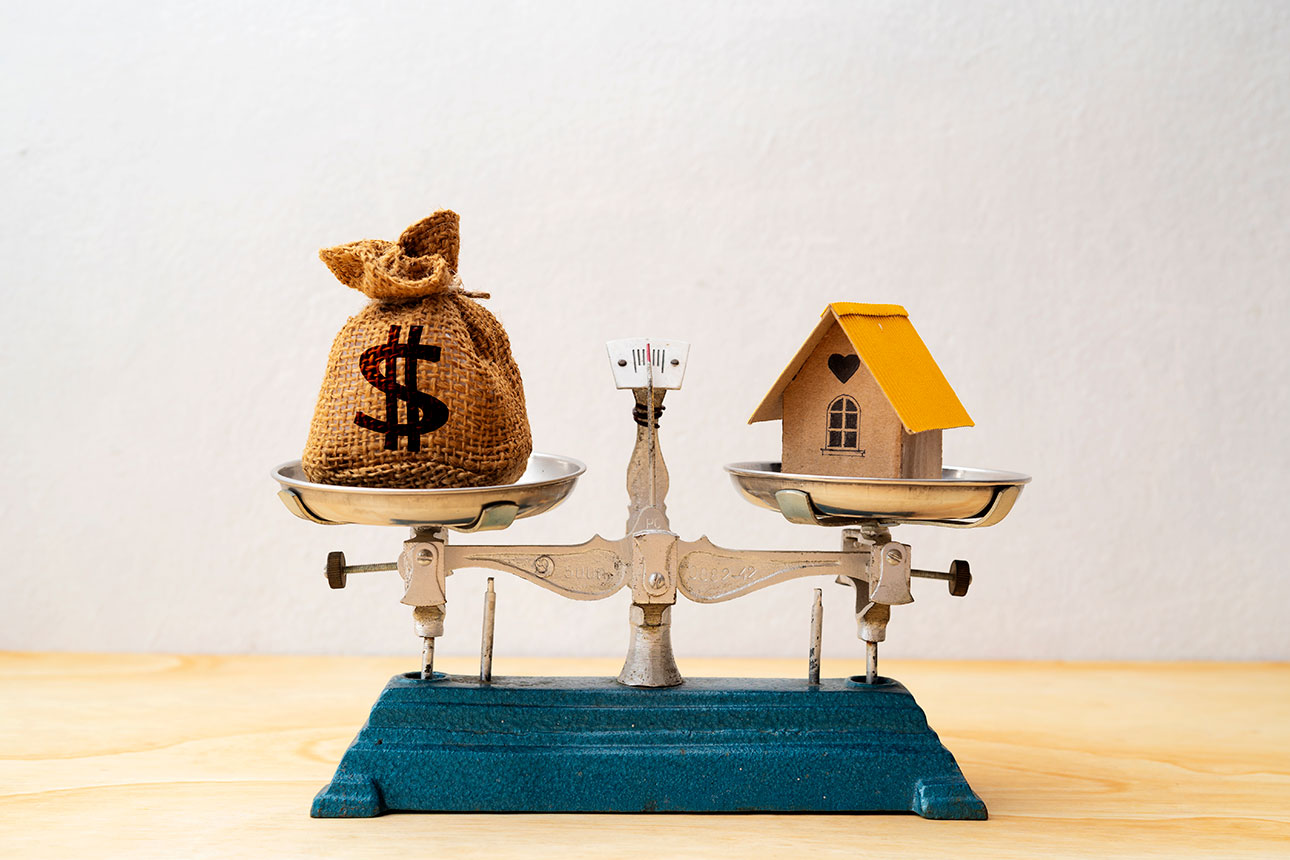How to increase home equity in a smart way
Updated Thu, Oct 2, 2025 - 7 min read
Top blog articles
Real estate experts refer to buying a home as one of the biggest financial investments. What they mean is that over time, homeowners can amass home equity which can then be quite advantageous. But, how to increase home equity to get the most benefits out of it?
In this article, we’ll explore what home equity is, why it is desirable, and how to increase home equity smartly.
What is home equity?
Simply put, home equity is the portion of your home that you fully own – independent of any remaining mortgage amount. That is to say, when you subtract your mortgage balance from your home’s current market value, that is your home equity.
Over time, as you pay off your mortgage balance, the amount of equity in your home increases. This growth in equity enhances the value of your home as an asset and contributes to the growth of your overall net worth.
Home equity can be a valuable resource for you – it can be used to cover significant expenses such as home renovations, college tuition, or other financial requirements. Most importantly, you can choose to capitalize on this equity by selling your home at a later time.
No wonder, every homeowner is in the pursuit of increasing home equity.
What does building home equity mean?
Home equity is the monetary value of your property that you possess outright. It’s the difference between your home’s overall worth and the remaining balance of your mortgage.
Let’s do some math to understand this. Suppose the value of your home is $200,000. And, your mortgage amount is $150,000. Then, your home equity will be $50,000.
Building equity is nothing but increasing the difference between your home value and the amount you owe to a mortgage lender. You can either increase your home’s value by enhancing it through ROI-enhancing home renovations or decrease the debt you owe through mortgage payments.
Suppose you made some extra mortgage payments on your $200,000 home, making the mortgage balance $145,000, your equity would increase to $55,000.
Want to know your home value?

With Kukun iHomeManager, you can see your property condition score on a scale of 500 to 850. The scoring is based on proprietary real estate data, the age and condition of your home and its components, all the home renovations you’ve made in the past, and neighborhood comps.
And that’s not all, you can even get recommendations for value-adding renovations and view the anticipated home value for the next five years!
Why is increasing home equity important?
Increasing the equity in your property boosts the available funds that you can access. By utilizing your equity through a loan or investment, you can generate long-term wealth, or if you decide to sell your home, you can potentially make a profit beyond your outstanding debt. As your assets grow and liabilities decrease, your net worth rises. That’s why it’s essential to pay off your mortgage and gain equity steadily.
With a good amount of home equity, you have access to a lot of resources.
Make a profit from selling your home
When you decide to sell your home, the money you receive first goes toward paying off your mortgage balance, and the remaining funds can be kept or reinvested in another property. The greater the equity you possess, the more profit you’ll gain from the sale. Keep in mind, though, that you might be subject to capital gains tax on the proceeds.
Utilize your home equity to secure a loan
You also have the option to leverage your home equity through a home equity loan or a home equity line of credit (HELOC). These are secondary mortgages that enable you to borrow against your home’s equity, using the property as collateral. However, it’s essential to recognize that failure to repay the loan could put your home at risk. While a home equity loan provides a lump sum payment, a HELOC offers a line of credit from which you can withdraw money as needed.
Increase your net worth
Your net worth is the difference between your assets and liabilities. For instance, if the total value of your assets (including your home, 401(k), savings, and checking accounts) amounts to $200,000, and your liabilities (comprising mortgage, credit card debt, and student loans) sum up to $150,000, your net worth would be $50,000. Increasing your net worth is nothing but growing your assets while managing and reducing your liabilities.
Read more: How to pay home loan with credit card?
How to increase home equity?

Homeowners have several options at their disposal to accelerate the growth of equity in their homes. Typically, this entails enhancing the value of the property, reducing the mortgage debt, or employing a combination of both strategies. Here are a few alternatives accessible to homeowners.
Increase your home value with well-planned improvements
Investing in home improvements, particularly in bathrooms, kitchens, and energy-efficient updates, can boost your home’s value. Even smaller updates such as a fresh coat of paint or improved curb appeal can make a significant difference in increasing equity.
Read more: Can home equity boost your real estate portfolio?
Increase equity by making a larger down payment
Your down payment at the time of buying a house is usually a percentage of the home’s price. It typically ranges from 3% to 3.5%. But, sometimes it can be as high as 20%, depending on the type of loan.
If you opt for a big down payment, the amount paid becomes direct equity in the property as it is not borrowed money. Consequently, a larger down payment results in greater equity in your new home.
Shorten your loan term through refinancing
Paying off your mortgage will give you 100% equity, provided there’s no other lien. You can expedite this process by refinancing to a shorter loan term. This not only enables early loan repayment but also substantial savings on interest payments. However, keep in mind that opting for a shorter loan term will increase your monthly payments, and you should be prepared to handle potential closing costs associated with the new loan.
Accelerate mortgage repayment
You can work toward paying off your mortgage early. Nevertheless, be cautious of any prepayment penalties tied to your mortgage. Sometimes, loan lenders might impose fees for early repayment. If that’s not the case, you can make extra payments toward your mortgage, save on the total interest rate payment over the loan’s life, and build equity faster.
Opt for biweekly payments
Switching to biweekly mortgage payments allows you to contribute an additional mortgage payment each year. Instead of paying once a month, you make half of the monthly payment every two weeks, effectively making 26 payments in a year (equivalent to 13 full payments). This approach can reduce your mortgage payoff timeline by 6 to 8 years.
Eliminate mortgage insurance
Private Mortgage Insurance (PMI) safeguards the lender’s investment in case of loan default. To avoid PMI and build equity faster, aim to make a down payment of at least 20% when purchasing a home. If you have PMI, consider getting rid of it once you achieve 20% equity or automatically when you reach 22% equity. For FHA loans, refinancing to a conventional loan or waiting for 11 years (with a down payment of at least 10%) is necessary to remove Mortgage Insurance Premium (MIP).
Use windfalls to pay down your principal
Whenever you receive additional funds, such as bonuses, an inheritance, or tax refunds, consider putting the extra money toward your principal balance. This will help pay down the mortgage faster and build equity.
Ensure home appreciation
Homes generally appreciate in value over time due to various factors, such as supply and demand in the housing market, nearby property values, and economic trends. By maintaining your home and waiting for favorable market conditions, you can increase your home equity.
Remember, consulting a real estate agent can provide valuable guidance on fluctuations in home values.
Last thoughts
The bottom line is that building equity in your home is a process that requires patience, but the rewards are certainly worthwhile. By making a substantial down payment, enhancing your property through improvements, and increasing your monthly mortgage payments, you can steadily grow your home ownership stake. With good equity in your home, you will have a lot of financial freedom.
Read more: Building equity in a home is a good thing because









